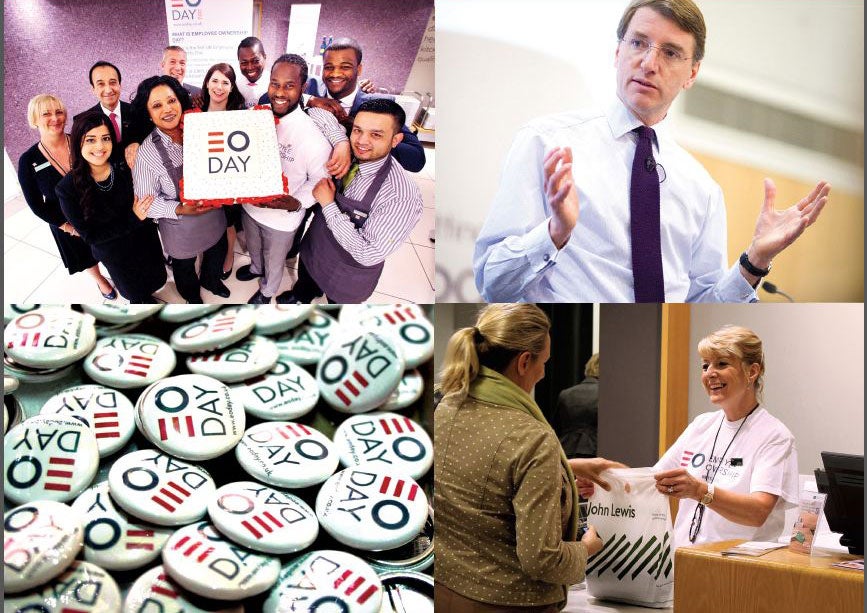Employee ownership day 2014: Why this business model is good for the economy
The Chairman of John Lewis Partnership explains why businesses should be owned by their employees

So, what is employee ownership all about?
It is the model in which a business is totally or significantly owned by its employees. Businesses like this already contribute more than £30bn each year to UK GDP and employ 151,000 people.
Why would a company want to be owned by their employees?
It actually enhances profits and their sustainability. This kind of ownership brings together the shareholders and the employees so that everyone has an interest in making the company as successful as possible. It means there's greater consideration given to the long term. There's compelling evidence that companies owned by their employees out-perform their conventionally owned counter-parts.
What does it really mean for employees, do they have any real power?
Definitely. Typically employees in an EO firm are more engaged, stay longer and say they are more fulfilled and satisfied in their jobs. According to the latest independent research published by the Employee Ownership Association, satisfaction is higher amongst employee owners, with four out of five happy to recommend their organisation as a place to work. EO firms create jobs faster and maintain them better. And in some cases, like in the John Lewis Partnership, employees, or Partners in our case, all receive a share of our profits every year.
What would you like to see change?
The most important shift is for more people to recognise that having a greater number of EO firms would be good for the economy. There's good evidence that shows that EO firms perform better than others, and that's especially strong in smaller and medium-sized, knowledge intensive businesses - these are the businesses that are forecast to be the biggest creators of new jobs in the next decade.
Next it needs to become much easier to create employee owned firms. The Government has taken significant steps to support that - most notably in changes to tax legislation, championed by Nick Clegg and George Osborne, which will come into effect in the Finance Act this month. Now we need momentum and that is building with a doubling in the membership of the Employee Ownership Association in the last year and a step up in the number of companies converting. Finally the movement needs scale. That will come from local networks and vocal support as well as accountants and lawyers acting as a transmission mechanism to drive awareness and make it easier for companies to transition.
What do you think about the Living Wage?
At the Partnership we share the Living Wage campaign’s objectives to pay employees fairly but we achieve that through different means. Our policy is to pay the market rate for a job and as much above that as can be justified by performance. On top of that our Partners receive a share of our profits as well as other benefits such as a final salary pension (after a qualifying period) and Partner Bonus.
How can employees go about raising ownership and reward schemes?
The most powerful way is to share information about successful employee owned businesses that exist in every sector of the economy, to illustrate the benefits it has for all employees, including the greater levels of profitability it delivers.
If you have a difficult boss – how can you improve this relationship?
In the Partnership our management are accountable to our Partners. That doesn't mean that we consult Partners on each decision, on the contrary, a leader’s job is to lead, but we do so in the knowledge that Partners will hold us to account for those decisions. That helps to ensure decisions are well thought through and delivered in a way which engages those affected.
Sir Charlie Mayfield has been Chairman of John Lewis Partnership since 2007

Join our commenting forum
Join thought-provoking conversations, follow other Independent readers and see their replies